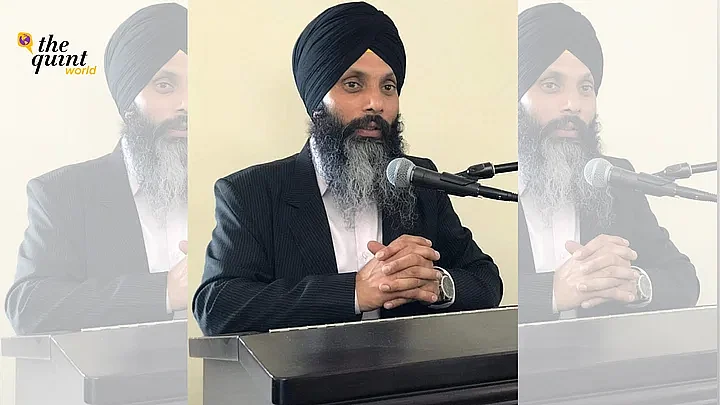Canada has withdrawn 41 diplomats from India after the two countries' relations soured over allegations of India's involvement in the murder of Khalistan Tiger Force (KTF) leader Hardeep Singh Nijjar in June.
Last month, New Delhi had asked Ottawa to reduce its diplomatic presence and withdraw dozens of diplomatic staff, adding that their diplomatic immunity would be withdrawn if they remained in India.
Canadian officials had called the "threat" a "violation of international law," BBC reported.
Foreign Affairs Minister Melanie Joly, who confirmed in a press conference that Canada will not retaliate in a similar fashion, said that the move was unreasonable, unprecedented and a violation of the Vienna convention on diplomatic relations.
“Given the implications of India’s actions on the safety of our diplomats, we have facilitated their safe departure from India...If we allow the norm of diplomatic immunity to be broken, no diplomats anywhere on the planet would be safe. So for this reason, we will not reciprocate."
Subsequently, the Indian Ministry of External Affairs responded to the development and said, "We have seen the Statement by the Government of Canada on October 19 regarding Canadian diplomatic presence in India."
"The state of our bilateral relations, the much higher number of Canadian diplomats in India, and their continued interference in our internal affairs warrant a parity in mutual diplomatic presence in New Delhi and Ottawa. We have been engaged with the Canadian side on this over the last month in order to work out the details and modalities of its implementation."MEA Statement
The Guardian reports that following the withdrawal of 41 diplomats accompanied by 42 dependents, Canada now has 21 diplomats in India.
Meanwhile, Canadian Immigration minister Marc Miller said the withdrawal of diplomats will translate to Canada slashing the number of embassy staff working on immigration.
“We acknowledge the concerns and frustrations that this situation may cause for clients, families, educational institutions, communities, businesses in Canada as a whole,” he said, The Guardian reported.
The Hardeep Singh Nijjar 'Murder' Row
Canadian Prime Minister Justin Trudeau had alleged the involvement of Indian government officials in the killing of Hardeep Singh Nijjar, alleged to be involved in separatist activities.
Trudeau said that Canadian security agencies had "credible" evidence that "agents of the Indian government" had assassinated Nijjar, who was a Canadian citizen.
Following Trudeau's comments, both Canada and India had expelled each other's top envoys from their respective countries. Later, India also suspended its visa services for Canadians.
India had "completely rejected" the claims and went ahead to publicly declare its concerns at "Khalistani terrorists and extremists, who have been provided shelter in Canada and continue to threaten India's sovereignty and territorial integrity."
Following Trudeau's comments, Canada expelled 1997 Punjab cadre IPS Pawan Kumar Rai, who was posted at the Indian mission in Ottawa.
In return, India expelled Canadian diplomat and intelligence officer Olivier Sylvestre for "interference" in India's "internal matters and their involvement in anti-India activities".
Visa processing services were also temporarily suspended by New Delhi.
